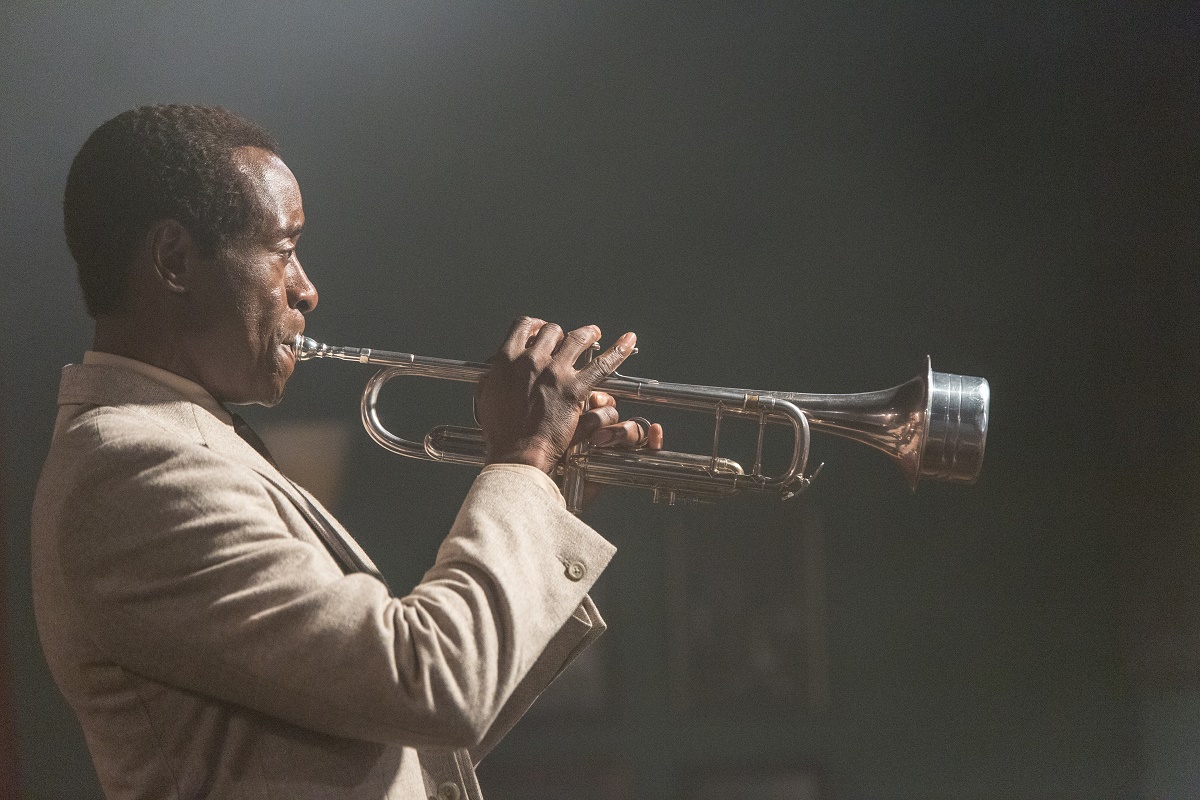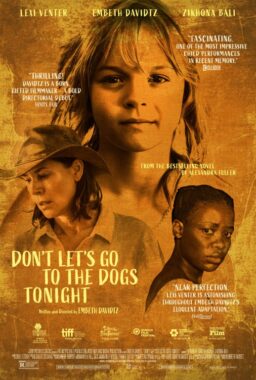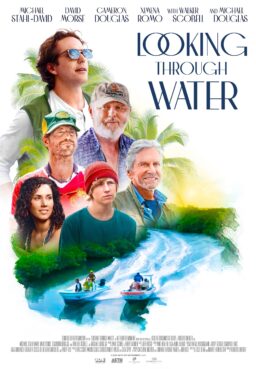Thanks to such classic albums as “Kind of Blue” and “Bitches Brew,” jazz musician Miles Davis would become one of the most innovative musicians of the 20th century—not only would he revolutionize what could be done in the genre, he would also prove to be a huge influence in the world of rock music. Between his musical genius and the colorful circumstances of his life (including rocky personal relationships, conflicts with record companies and fellow musicians and struggles with drugs), it was perhaps inevitable that his life would one day become the subject of a movie, but anyone going into “Miles Ahead” expecting a standard-issue biopic will be for a shock. Instead of giving Davis’s life that usual paint-by-numbers treatment, acclaimed actor Don Cheadle, who makes his feature directorial debut here in addition to co-writing the screenplay and starring as Davis, has taken a decidedly offbeat approach by using the period in the late Seventies in which the normally prolific musician had gone on a mysterious, years-long retreat from making music as a springboard for a tale that finds Davis and a Rolling Stone reporter (Ewan McGregor) angling to write the Miles Davis comeback story teaming up to track down a stolen session tape that leads to car chases and shootouts and occasionally flashes back to some key moments in his life.
The end result may not be completely successful—the stuff involving the pursuit of the purloined tape plays at times like a bizarre cross between “Superfly” and “Give My Regards to Broad Street”—but it is certainly ambitious and more lively than it might have been with a more straightforward treatment. As Davis, Cheadle does an excellent job of striking a balance between the mythology that has grown around Davis and the real person at the center of it all. As a director, he takes a number of big risks and while they may not all pay off in the long run, his work here is intriguing enough to make one curious about what he might come up with if he decides to take another shot behind the camera.
Cheadle, who will next be seen in “Captain America: Civil War,” sat down to talk about “Miles Ahead,” the challenges of playing someone as legendary as Miles Davis and the important influence that the biopic spoof “Walk Hard: The Dewey Cox Story” had on his own film.
Although “Miles Ahead” is not a musical biopic in the traditional sense, it does arrive at a time when such films have become increasingly popular—it arrives in theaters at the same time as movies centered around Chet Baker and Hank Williams. Why do you think there is currently such an interest in films of this type, as opposed to biopics about other kinds of artists like actors or painters?
This is just a coincidence in timing, you know what I mean? They just pick dates and they roll out and try to be strategic about how and when to get an audience. I think that for music, it is because it is a somewhat mysterious art form. If you are not a musician, it is definitely an interesting art form to see the science behind it to see how it works. How do people pull out of the air something that becomes a song? I think that is what people want to get behind and understand. That or it is a historical figure that they want to know more about. I can’t imagine a movie about actors—I don’t even know what that would be like unless that actor had an amazingly rich and probably controversial life.

How did “Miles Ahead” first come into being—was it an idea that you brought to the Davis estate or did they come to you with it?
It had been kind of swirling around for a while and I had heard from different people questioning me about whether I would do a Miles Davis movie. At this point, I had done a lot of biopics about historical figures and I wasn’t really that interested in doing it. Then Miles was inducted into the Rock and Roll Hall of Fame in 2006 and they were interviewing his nephew and asked him if they were ever going to do a movie on his life. He said “yes” and that Don Cheadle was going to play him. He is the one that kind of threw the gauntlet down. Then they called me and we met and talked about ways to approach it. They were down with me wanting to do it in a kind of unconventional manner and boom.
What inspired you to do the film in this particularly unconventional approach?
Looking at his life and bumping into this period when he was not making music or being creative—one of the most prolific and creative artists of the 20th century shutting it down for five years—was a particular point of interest to us as storytellers. We thought this was a good place to create a narrative about how he comes back and what the components are for that. We wanted to externalize an internal process. The way it is constructed, he is asked how he would put it and he puts the horn to his lips and blows. That is what this movie is—he plays the answer.
As you said, you have done a number of films in the past where you have played real people—some of them well-known figures like Miles and Sammy Davis Jr. and others, like Paul Rusesabagina from “Hotel Rwanda,” who are not quite as familiar to many people. As an actor, is it easier to play someone like Miles or Sammy when there is so much archival material to work from? Or is it more difficult because more people know what they look and sound like?
It is easier. I think that you are courting folly if you are trying to, as you are creating the performance, make sure that people are going to have a favorable reaction to you or not call “bullshit” and go, “Oh yeah, that looks like the guy.” You just get as close to the character as you can and let the chips fall where they may. It was definitely helpful to me to not only have a lot of resource material but to also be in close relationship to his family and have them as sources of information and stories and insight that doesn’t exist in other places.
Did they have any issues with the approach that you chose for the film?
It was definitely a negotiation and we talked about a lot of things. Ultimately, we all agreed that Miles would want something that felt creative and tread ground that was different from ground that had been tread before, especially with characters like this and musicians, as we talked about at the beginning. We wanted to do something inventive that felt like a composition that was creative and improvisational like his music.

Did you have any personal experience with playing the trumpet before taking on this role?
I had experience in bands and when I did “The Rat Pack.” Sammy Davis Jr. played the trumpet and that was the first time that I attempted to figure out what was going on with that instrument. Once this sort of got fast-tracked and I knew that it was something that I hoped was going to happen, I started to play in earnest. I took lessons and really started to play the horn every day. I have it up in my room right now.
You have directed a couple of episodes of your television series “House of Lies,” but “Miles Ahead” marks your feature film directorial debut. How did the notion of you directing the film as well as starring in it come about?
It was a job that I tried to give away. After pitching my idea and the way that I wanted to approach it, it became clear to everyone else around me that the only way to really bring it off was if I was the person to be at the helm of it. Like I said, it was something that I tried to give away but ultimately, the only way to get it done was if I did it.
Considering the number of impressive directors that you have worked with over the years, did you look at any of them—or any particular films—for inspiration in regards to what you wanted to do here?
Oh yeah, I studied all sorts of films in order to prepare for this—ten years to prepare for something is a long time and we constantly revisited those that we wanted to steal liberally from. Fellini—”8 1/2” was a movie about the existential expression of an artist trying to figure out what he wanted to say next. “Toto the Hero,” “Run Lola Run,” “All That Jazz”—there were a lot of movies. There were a lot of directors that I worked with and I think the best part that I took from them was the feeling of a collaborative effort and being in a process that recognizes that the best answer wins.
I wanted to empower all the keys I worked with so that everybody who worked on this film would bring their perspectives to bear, and feel like they had a voice in the way that Miles hired band members to do what they did. Herbie [Hancock] talks about working with Miles, one of the first times they ever worked together, and being on stage with him and not knowing what to do. He said, “Miles, what should I play?” and Miles said, “Piano, motherfucker.” That is how I wanted to approach it—to let them do what they did best and be a part of the process. I didn’t want to be dictatorial—I wanted all of us to be a part of it.
Is directing features something that you are interested in pursuing further?
There are some things out there that could happen. I just like the storytelling process, so we will see.
Considering the unconventional nature of the film and the fact that movies about jazz—or “social music,” as Miles would say—have not been big box office in the past, how difficult was it to get this particular film financed and released?
It was very tricky. Our distributor only came along after the film was completed, so up until that point, it was very tricky to get it made. When someone is spending X amount of dollars trying to figure out ways to guarantee, as much as they can, some kind of return on their investment, there are a lot of boxes that you kind of have to check off to give them some security. Ultimately, at the end of the day, there are going to be irrational investors. Movies are money losers, most of the time, and it is always a gamble. For us, casting was important and imperative. I had to crowd-fund for it, spend my own money, defer money, get friends to put in money and shoot in Cincinnati, where there was a rebate—all of these things go into getting someone to say “yes.”
When you have shown “Miles Ahead” at festivals and screenings, possibly to audiences expecting a straightforward biopic of the kind that “Walk Hard: The Dewey Cox Story” mercilessly mocked, what has the reaction been like for you?
I’m glad you mentioned that one because that was another movie that we watched a lot while making this—we would be like “Holy shit, we can’t do that now!” That was great for going forward, for us at least. I think audiences have mostly been pleasantly surprised that it was not something that they already knew every twist and turn five minutes in, given the road that has been trod before. They got it and they knew, for the most part, that they just had an experience that felt like walking around inside of Miles’ brain and creative aspirations, as opposed to some instructional and didactic, “this happened, then this happened,” where you get short shrift of his whole life as it just clicks off the highlights. This is something that we always wanted it to be and I think that the movie succeeds in that it is impressionistic and it flows. We didn’t want to put number generators up there that told us about this date or this place or whatever—it is modal in that way, which is another way in which we chose to approach the story both cinematically and musically.
In the remaining moments that we have, please feel free to divulge as many spoilers regarding the upcoming “Captain America: Civil War” as you can.
I don’t want to be shot or stalked by the Marvel gestapo. The gag order in this case actually was, “You will be gagged,” so I am not going to say anything.












